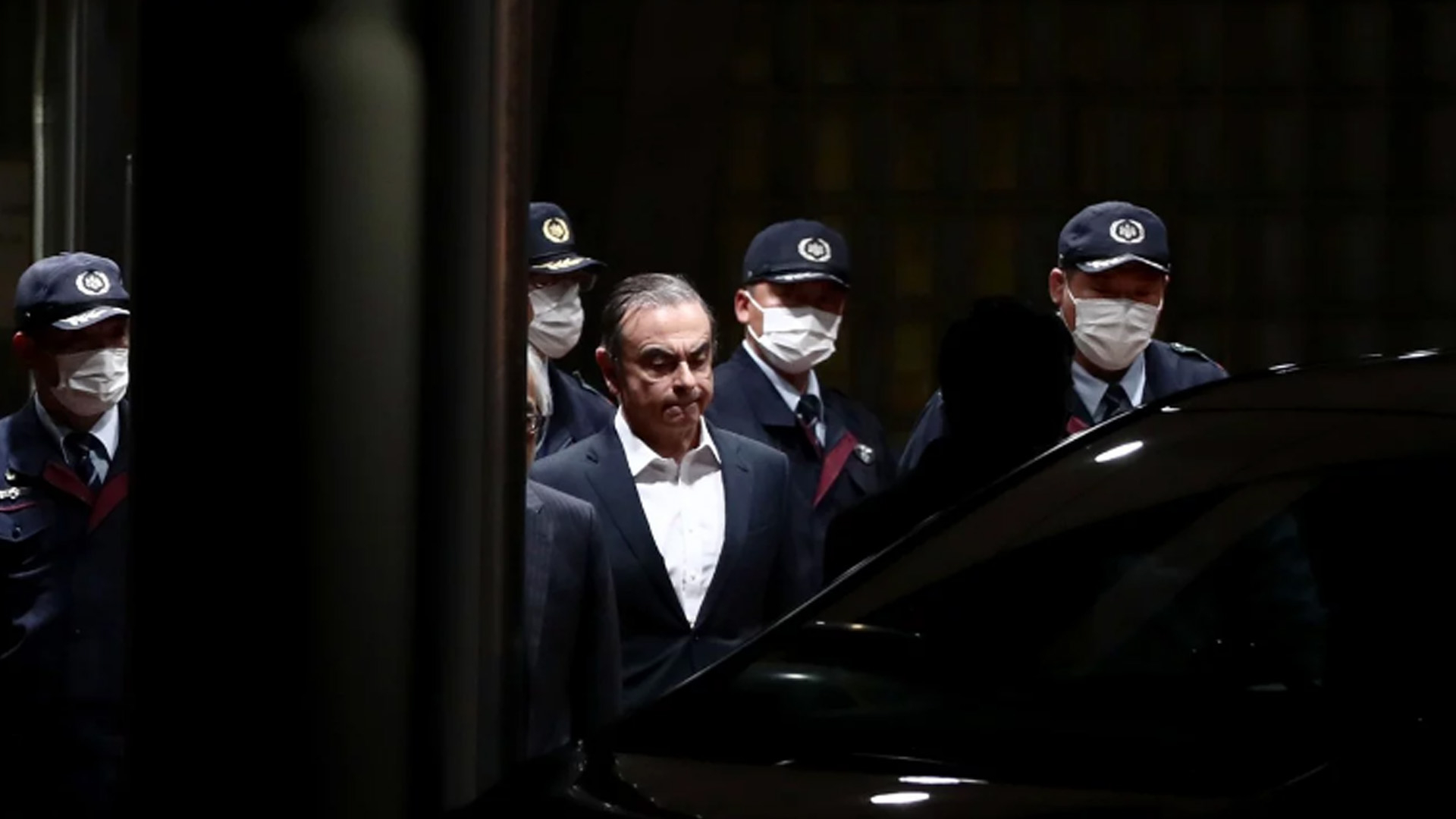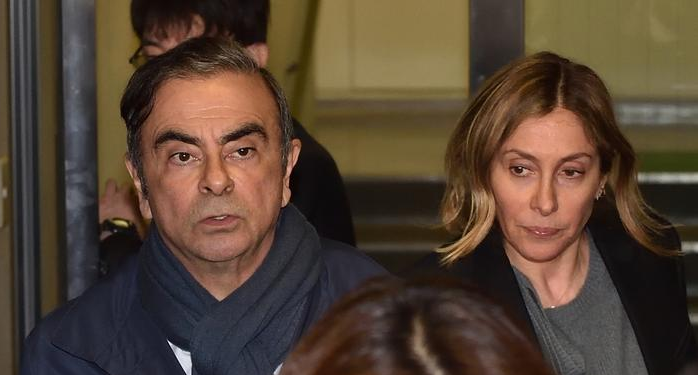
Carlos Ghosn following his release on strict bail conditions in Tokyo in April 2019. /AFP Photo
Carlos Ghosn following his release on strict bail conditions in Tokyo in April 2019. /AFP Photo
The former chairman of Nissan and Mitsubishi Motors Carlos Ghosn pulled off an audacious plan to flee Japan. He not only successfully evaded round-the-clock surveillance but also managed to slip out of the country unscathed.
"I am now in Lebanon and will no longer be held hostage by a rigged Japanese justice system where guilt is presumed, discrimination is rampant, and basic human rights are denied, in flagrant disregard of Japan's legal obligations under international law and treaties it is bound to uphold," the 69-year-old said in a statement released on Tuesday, adding "I have not fled justice — I have escaped injustice and political persecution."
The former auto tycoon was awaiting trial on charges of financial misconduct and exploiting corporate resources for personal gains, and was granted a 4.5-million-U.S.-dollar bail in April last year. His lawyers have denied any knowledge of his whereabouts, saying they are "stunned" by his departure.
"We were completely caught by surprise. I am dumbfounded," Ghosn's lawyer Junichiro Hironaka told reporters, claiming he was not in touch with his client.
But it's unclear how Ghosn managed to leave the country with 24-hour manned and video monitoring and restrictions on his movement. Japanese customs and law enforcement departments too would have a lot of explaining to do.
Japan's public broadcaster NHK cited a foreign ministry official as saying: "He was not supposed to leave the country. Had we known about it beforehand, we would have reported that to proper law enforcement authorities."
As several questions remain answered, multiple unconfirmed theories of the dramatic run away have been reported.

Carlos Ghosn with his wife Carole. /AFP Photo
Carlos Ghosn with his wife Carole. /AFP Photo
Theory 1: The plan was masterminded by Ghosn's wife with the help of a Gregorian music band. The Christmas band was invited to his Tokyo residence to perform, and when they packed up, Ghosn slipped into a large musical instrument box. He was then shipped out to Turkey from where he boarded a private jet to enter Lebanon. Turkish authorities have detained seven people, including four pilots, for allegedly assisting the ousted Nissan boss during his transit to Lebanon through Istanbul.
Theory 2: French newspaper Les Echos said that the man may have fled Japan under a false identity with a forged passport, after boarding a private plane from a smaller airport where he was less likely to be recognized.
Theory 3: Japan's Asahi newspaper suggested that Ghosn may have left from Kansai International Airport near Osaka, citing records from the Ministry of Transport indicating a private jet left Japan for Istanbul on Sunday evening.
Theory 4: Ghosn, who holds French, Lebanese and Brazilian passports, may have fled using his French passport. Reuters cited an NHK report claiming that Japanese authorities allowed Ghosn to carry a spare French passport in a locked case while out on bail. NHK quoted sources as saying, "He has been obliged to carry the passport with him since May, without elaborating on the reason." According to law, foreigners in Japan are required to carry their government-issued identity proofs at all times.
These theories may offer a different "How did he leave?" explanation but they all point towards a common trait – that it was a perfect plot that could've taken months to hatch.
Why escape to Lebanon?
Born to Lebanese parents living in Brazil, Ghosn moved to Lebanon when he was six. He left the country for university education in Paris. Since his arrest in 2018, he has received support from the Lebanese government and its people who see him as "one of Lebanon's success stories abroad." Billboards reading "We are all Carlos Ghosn" were put up in Beirut in a show of support for the "favorite son of the soil." Citing sources, CNBC reported that Ghosn was greeted warmly by Lebanon's President Michel Aoun on Monday after flying into Beirut via Istanbul. Lebanon has no extradition agreement with Japan.
As Japan looks for answers, an attorney for Ghosn said he would hold a news conference in Beirut on January 8.
So, will he reveal key details of the master plan which took him out of Japan or would he rather focus on attacking the Japanese legal system? Either way, the story is far from over. For now, Carlos Ghosn remains a free man.